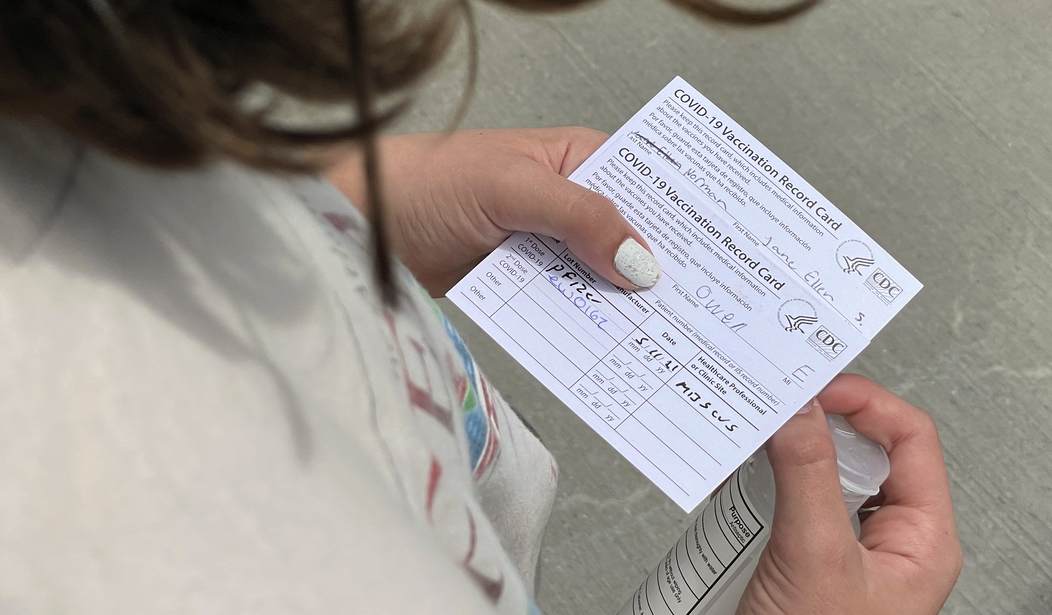There’s already a COVID vaccine for anti-vaxxers, of course. It’s called SARS-CoV-2. If you get it and manage to avoid death and debilitation, which many millions globally have failed to do, you’re rewarded with antibodies and immunity for some unknown duration.
But what if I told you there was another way to get antibodies that didn’t involve being infected with a killer novel virus or with one of the innovative mRNA vaccines that have already saved countless lives?
For reasons I’ll never understand, some anti-vaxxers who blanch at the idea of being injected by a Big Pharma product on the front end to prevent severe illness from COVID are willing to be injected by a Big Pharma product on the back end for the same purpose. Vaccine skeptics like Joe Rogan and Aaron Rodgers each received monoclonal antibodies after they tested positive. Ron DeSantis also heavily promoted monoclonal antibodies as a treatment option during Florida’s summer wave as he began taking a more aggressive position against vaccine mandates. Antibody treatments don’t carry the same stigma as vaccination does, whether because it seems more “natural” to give people medicine once they’re already sick or because there’s been less of a push among the expert class on behalf of monoclonal antibodies, resulting in less of a populist backlash.
Whatever the explanation, monoclonal antibodies aren’t exclusively therapeutic. They’re synthetic versions of the defense your own body naturally produces when you’re vaccinated or infected by the virus so they can be used prophylactically too. Regeneron has been conducting trials to see what happens if someone receives its antibody treatment *before* they’re infected with COVID. Would the synthetic antibodies perform the same function that vaccine antibodies do, lowering the risk of infection and illness? And if so, for how long?
Answers: Yes, and for longer than you might think. If you’re leery of the COVID vaccine for whatever reason, preemptive treatment with monoclonal antibodies will dramatically reduce the threat from the disease — for awhile.
Regeneron said on Monday that the data show the drug, called REGEN-COV, can provide long-lasting temporary immunity against Covid-19, which could make it an attractive option for people who don’t respond to vaccines because they have impaired immune systems.
The data were gathered as part of a study of people at high risk of contracting Covid-19 because they are living with someone recently diagnosed with the disease.
In September, Regeneron published data from the same study showing that the drug reduced the risk of Covid-19 infection by 81.4% for one month after patients received the drug, achieving the study’s primary goal. The new study data confirmed that the same level of protection is durable for at least an additional seven months, Regeneron said…
Over eight months, none of the subjects receiving REGEN-COV were hospitalized for Covid-19, compared with six subjects receiving placebos, including five hospitalizations in the seven-month follow-up, Regeneron said.
Vaccination teaches your body to recognize the virus and to respond quickly to it by generating natural antibodies rapidly when it encounters the virus in the future. As I understand it, monoclonal antibodies don’t teach your body anything. They float around in your system, ready to battle the virus if you’re infected, until they degrade. Once they’re gone, they’re gone, and you’re back to square one. But if you’re immunocompromised and can’t produce natural antibodies, it’s obviously a big deal to have those synthetic ones present in your system for eight months.
And if you’re unvaccinated by choice, particularly if you’re at high risk of severe illness due to other health problems, having a course of synthetic antibodies in your body is much better than nothing. I wonder if the public health bureaucracy would consider authorizing monoclonal antibodies as an “anti-vax vaccine” for that reason, knowing that anti-vaxxers are more willing to receive it than they are to submit to traditional vaccination. On the one hand, they’d be cutting into the stockpile of doses that are better reserved for the immunocompromised and for those infected with COVID who need monoclonal antibodies to fight off the disease. On the other hand, if scientists are serious about cutting down transmission, a course of prophylactic antibodies may be as much as the average unvaccinated person is willing to agree to in the name of reaching that goal.
It would be fantastically expensive since a course of monoclonal antibodies costs on the order of 100 times as much as the vaccine does. But maybe it’s worth it. New data from Texas confirms that priming one’s immune system to defend against the virus is frequently the difference between life and death, especially in non-elderly people:

The unvaccinated have accounted for 85 percent of cases and deaths in America’s second largest state so far this year. Out of 1.5 million positive COVID tests since mid-January, just three percent came from vaccinated people. Monoclonal antibodies may not be as good as that but they’re pretty darned good if Regeneron’s numbers are accurate. And time is of the essence: Although America’s doing much better with cases and deaths now than it was two months ago, there are signs that the winter wave might be (slowly) beginning. Cases nationally declined steadily from mid-September to late October but have lately leveled off. States like Minnesota and even parts of California are struggling with rising hospitalizations again.
It’s all but assured that this year’s winter wave won’t be as bad as last year’s but whether it’ll be objectively bad is a mystery for the moment. Making the “anti-vax vaccine” widely available could make it easier for everyone. Especially now that Americans are beginning to let down their guard in the belief that the worst is behind us.








Join the conversation as a VIP Member